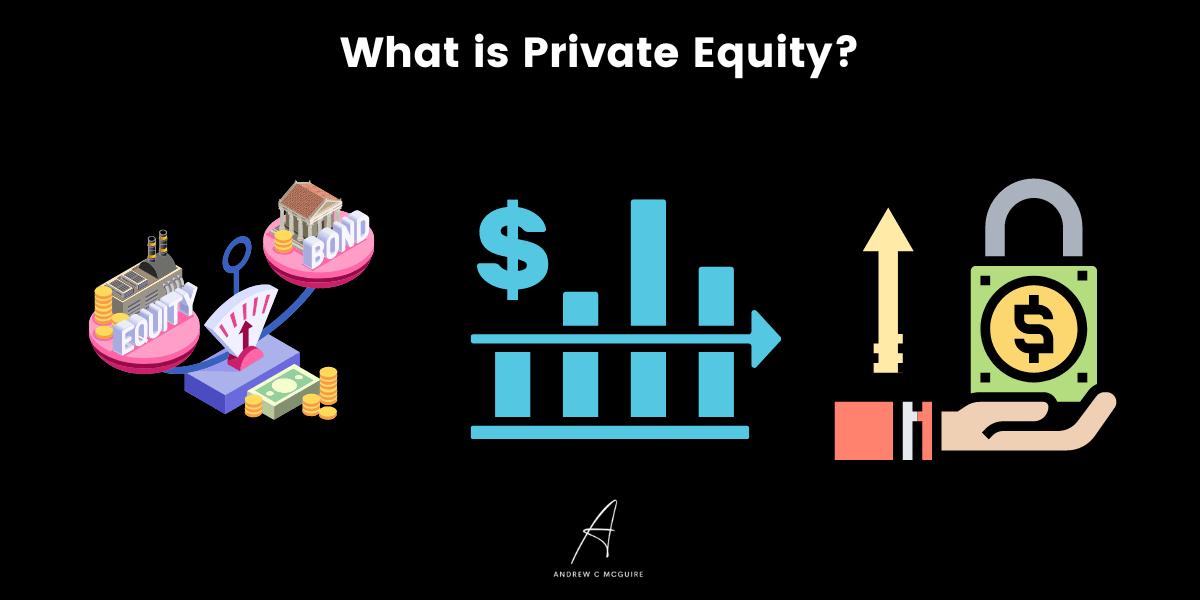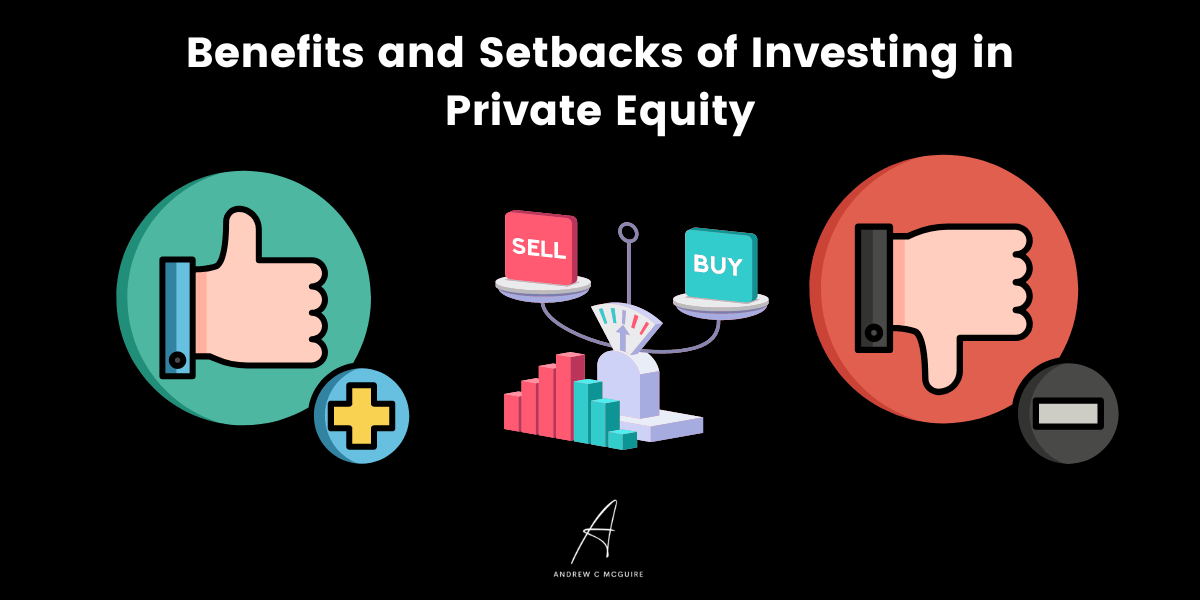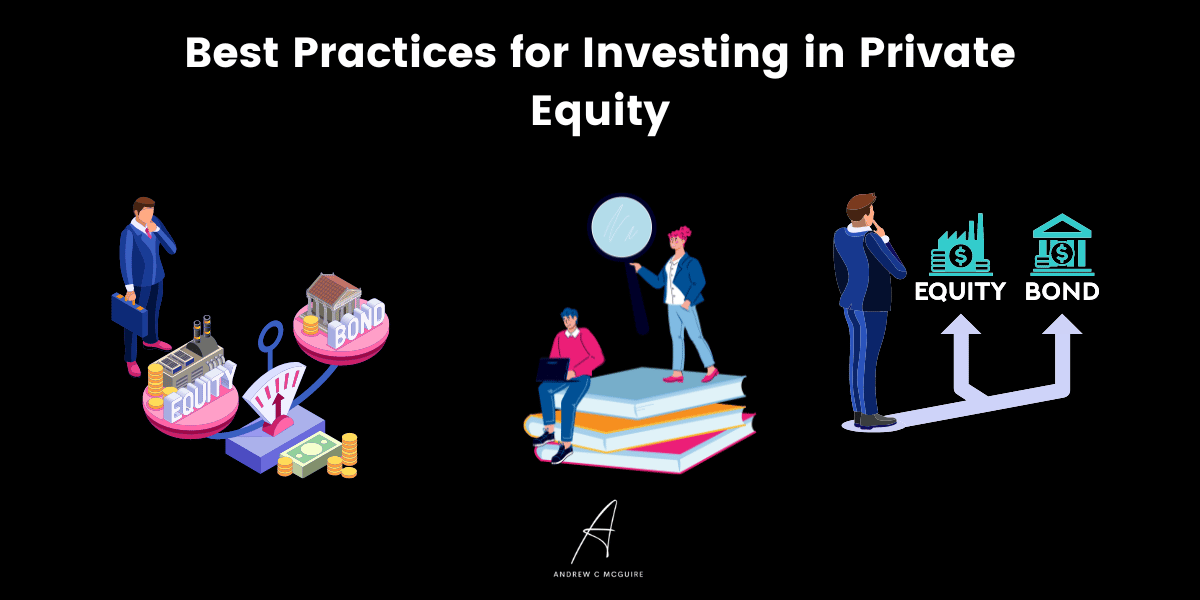Are you looking to invest in private equity and secure your financial future? With the right strategies, investing in private equity can be an amazing way to grow your wealth. Let us show you how to make wise investments and protect what is yours with our comprehensive approach that includes precious metals and gold investments. Take control of your finances today. another arm of profitable investment is an investment in gold and other precious metals. But for you to effectively pull this off, you must find a reputable and reliable precious metals IRA company – this is why I recommend dealing with Augusta Precious Metals.
- Money magazine’s “Best Overall” Gold IRA Company in 2022
- Quarterback Joe Montana and his financial team chose Augusta
- Zero fees for up to 10 years — every customer qualifies
- Investopedia’s “Most Transparent” Gold IRA Company in 2022
- Free guides on how to avoid gimmicks & high-pressure tactics used by gold IRA companies
We earn a commission if you make a purchase, at no additional cost to you.
Are you looking for a way to hedge your wealth from inflation and recession? Investing in private equity may be the answer. Private equity is an attractive option as it offers investors access to long-term capital gains, potential tax advantages, and control over their investments. However, there are some risks involved with investing in this asset class that must be considered before taking the plunge. In this article, we will explore what private equity is, how to invest in it safely and effectively, its benefits and drawbacks as well as best practices when investing in private equity so that you can make a conscious decision about protecting your wealth through this investment strategy. Just before we jump into the nitty-gritty of private equity investments, check out what quarterback Joe Montana says about Augusta Precious Metals and the reason his financial team chose them as the #1 investment company out there.
[presto_player id=4770]
What is Private Equity?
Private equity is a type of investment that involves the purchase of shares in privately held companies. It can be used to finance business expansion, acquisitions, or restructuring and is typically done through private investors such as venture capitalists, angel investors, and private equity firms. Private equity investments are often seen as higher risk than traditional investments due to their lack of liquidity and potential for large returns.
Private equity refers to capital invested into non-publicly traded companies by professional investors. This form of financing provides capital for businesses seeking growth opportunities or needing funds for operations or restructuring.
There are several types of private equity investments available asides from private equity investing, including venture capital (VC), leveraged buyouts (LBOs), distressed debt investing, mezzanine debt investing, growth capital investing, real estate investment trusts (REITs) and special situation funds. Each type has its own set of risks and rewards associated with it so it’s important to understand which one best suits your needs before making an investment decision.
Private equity investments offer a variety of benefits, but it is important to understand the risks involved before investing. In this article, we will know how to invest in private equity and discuss strategies for success.
Key Takeaway:
Private equity investments can provide large returns, but they also come with a higher risk due to their lack of liquidity. Types of private equity include venture capital, leveraged buyouts, distressed debt investing, and more.
How to Invest in Private Equity?
Private equity investments involve buying stakes in privately held companies, usually with the goal of increasing their value over time. Before investing, it is important to understand the steps involved, the risks associated with it, and strategies for successful investing.
The first step is to identify potential investment opportunities by researching different private companies that are looking for capital or have recently received funding from venture capitalists or angel investors. Once you’ve identified an opportunity that meets your criteria, you should contact the company directly and inquire about any available investment opportunities. If they are open to taking on new investors, they will provide you with additional information such as financial statements and other documents related to their business operations so that you can make an informed decision before committing any funds.
As with any type of investment, there are always risks involved which must be taken into consideration when deciding whether or not to invest in a particular company. Some of these risks include lack of liquidity (the inability to quickly convert assets into cash), limited disclosure (private companies do not have the same level of transparency as publicly traded ones), high fees charged by intermediaries such as brokers and advisors who facilitate transactions between buyers and sellers, legal liabilities associated with certain types of investments like real estate partnerships, etc., political risk due to changes in government policies, and currency fluctuations if dealing internationally.
However, it is critical to understand the risks involved before making an investment decision. Next, we will discuss the advantages and disadvantages of investing in private equity as well as potential tax implications.
Key Takeaway:
Key takeaway: Investing in private equity involves researching potential opportunities, understanding the risks associated with it, and working with intermediaries to facilitate transactions.
Benefits and Setbacks of Investing in Private Equity
Private equity investments are typically high-risk, but they can also offer significant rewards if managed properly. Before investing in private equity, it is important to understand the benefits and setbacks of this type of investment as well as the tax implications associated with it.
Advantages of Investing in Private Equity
One advantage of investing in private equity is that investors have more control over their investments than when investing in public markets. A private equity firm often takes an active role in managing companies, which allows them to influence decisions such as acquisitions or divestitures. Additionally, since these investments are not publicly traded on exchanges, investors may benefit from reduced liquidity risk compared to stocks or bonds. Finally, there may be opportunities for higher returns due to less competition among buyers for these types of assets.
Disadvantages of Investing in Private Equity
While there are potential benefits associated with private equity investments, there are also some drawbacks that should be considered before making any commitments. These include a lack of transparency regarding financial information about the company being invested in and limited access to capital markets for exit strategies if needed down the road. Additionally, because these types of investments involve long-term commitments and illiquidity risks they require larger amounts upfront than other forms of investment vehicles like stocks or bonds do.
It is important that all potential investors consult with a qualified accountant prior to committing any money so they understand exactly how much money will need to be set aside each year for taxes related purposes before calculating expected returns from their individual portfolios.
Key Takeaway:
Investing in private equity can offer higher returns and more control, but involves long-term commitments and illiquidity risks. Key considerations include transparency, access to capital markets, taxes, and liquidity risk.
Best Practices for Investing in Private Equity
Before you invest, it is important to understand the best practices for investing in private equity.
1
Research Before You Invest
It is essential to do thorough research before investing in any type of asset, including private equity. Researching the company’s financial statements, management team, industry trends, and other factors will help you make an conscious decision about whether or not to invest. Additionally, researching potential investments will also help you determine how much risk is involved with each investment opportunity.
2
Diversify Your Portfolio
Diversifying your portfolio by allocating funds across different types of assets can reduce overall risk while still providing opportunities for growth. Private equity investments should be just one part of a larger portfolio that includes stocks, bonds, mutual funds, and other assets such as real estate or precious metals like gold or silver coins.
3
Understand the Fees and Costs Involved
Private equity investments typically involve high fees due to their complex nature; however these fees are often offset by higher returns over time if managed correctly. Be sure to read through all documents related to an investment carefully so that you fully understand what fees may apply before making any commitments or decisions regarding the investment itself.
In conclusion, understanding best practices for investing in private equity can help ensure that investors make informed decisions when considering this type of asset class as part of their overall wealth protection strategy. By doing thorough research on potential investments beforehand and diversifying portfolios accordingly, investors can minimize risks while still taking advantage of the potentially lucrative opportunities offered by private equity markets.
Key Takeaway:
Investing in private equity can be an amazing way to diversify your portfolio and protect wealth, but it is important to research investments, understand the fees and costs involved, and diversify portfolios accordingly.
Conclusion
It has the potential to provide higher returns than traditional investments but also carries with it more risk. Before investing in private equity, it’s important to understand the fees and costs involved as well as the risks associated with such an investment. Additionally, you should always research before you invest and make sure you are comfortable with any decisions made. Lastly, diversifying your portfolio is key when investing in private equity so that if one investment fails or does not perform as expected, other investments will help offset losses. With proper research and due diligence on behalf of investors, private equity can be a great tool for generating wealth over time.
FAQs
Andrew’s Gold IRA Pick
Augusta Precious Metals is the most trusted gold IRA company


![_How To Invest In Private Equity [2023 Guide]](https://andrewcmcguire.com/wp-content/uploads/How-To-Invest-In-Private-Equity-2023-Guide.png)

